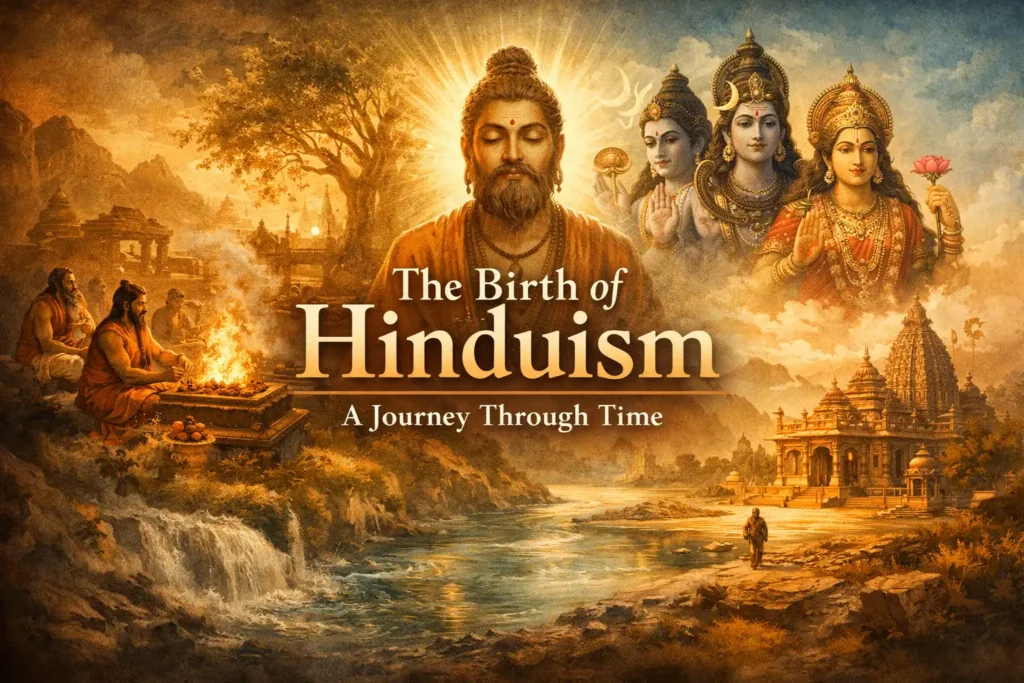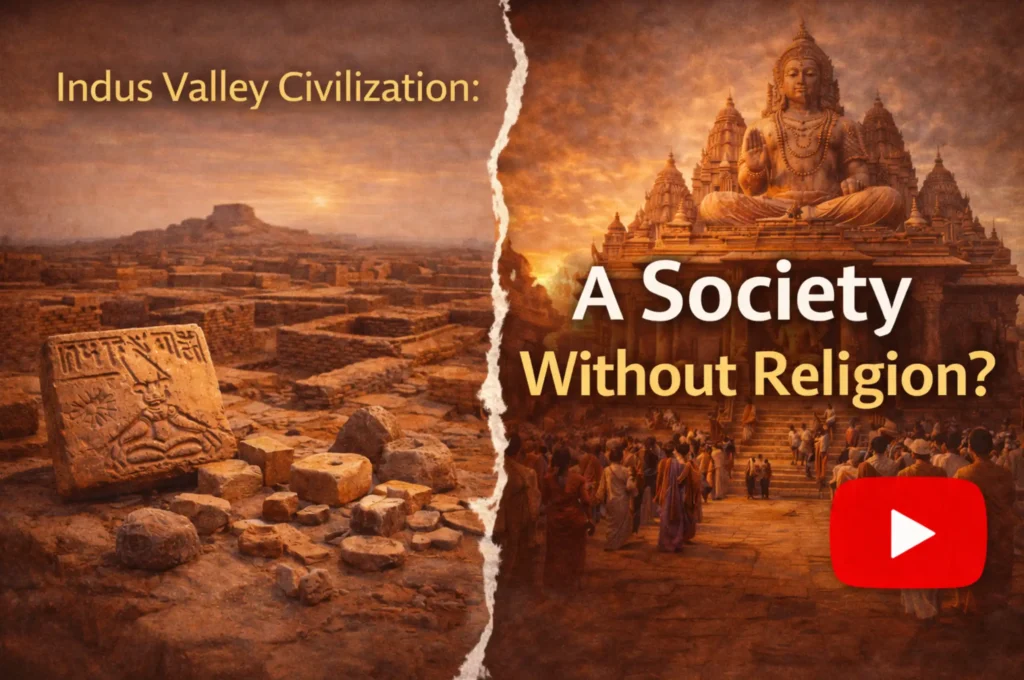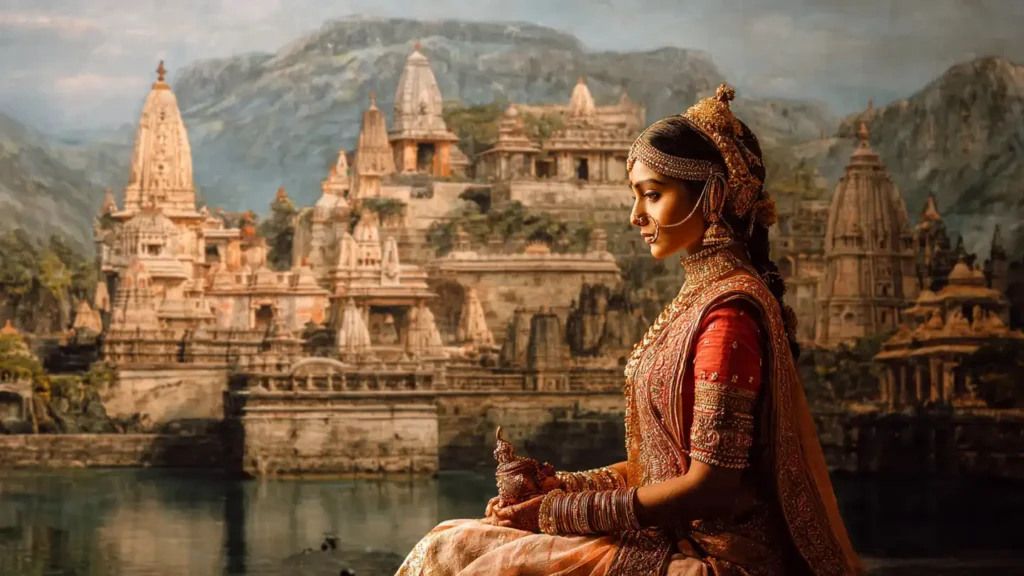Explore the significance of Indian history in shaping the world today. Learn about ancient civilizations, the Mughal rule, and the impact of colonialism. Gain insights into the contributions of Indian mathematicians, religions, and cultural heritage. Understand the challenges and resilience of the Indian people throughout history.
Indian History for Upsc
This is an educational post and those who prepare for UPSC can get significant help from this article.
Topics Covered for UPSC: significance of indian history, dynasties that ruled india, contribution of india to the world, negative impact of mughal rule in india, indian history for upsc
Explore: Articles for reading, History, Indian History, Social Studies
Table of Contents
Significance of Indian History
Indian history is a rich tapestry that has played a significant role in shaping the world as we know it today. From ancient civilizations to colonial rule, India’s past holds immense importance in understanding the present. However, it is crucial to distinguish between factual information and misleading narratives that often cloud our understanding of Indian history. In this article, we will explore the significance of Indian history in shaping the current world and shed light on the negative impact of certain historical events, such as the Mughal rule, on modern-day politics.
India’s history dates back thousands of years, with evidence of human settlements found in the Indus Valley as early as 2500 BCE. The Indus Valley Civilization, one of the world’s oldest urban civilizations, thrived in what is now modern-day Pakistan and western India. This advanced civilization had a sophisticated urban planning system, a writing system that is yet to be fully deciphered, and trade connections with other ancient civilizations.
Dynasties that Ruled India
As time progressed, India witnessed the rise and fall of numerous empires and dynasties. The Maurya Empire, under the leadership of Emperor Ashoka, united most of the Indian subcontinent in the 3rd century BCE. Ashoka’s conversion to Buddhism and his efforts to spread the teachings of the Buddha had a profound impact on Indian society and laid the foundation for the spread of Buddhism across Asia.
The Gupta Empire, often referred to as the “Golden Age” of India, flourished from the 4th to the 6th century CE. During this period, India experienced advancements in science, mathematics, astronomy, and art. The Gupta dynasty’s patronage of scholars and artists led to remarkable achievements, such as the concept of zero, the decimal system, and the famous Ajanta and Ellora caves. However, one cannot discuss Indian history without acknowledging the impact of foreign invasions and colonial rule. The Mughal Empire, which spanned from the 16th to the 19th century, brought with it a fusion of Persian, Turkish, and Indian cultures.
While the Mughals made significant contributions to architecture, art, and literature, their rule was not without controversy. The forced conversion of Hindus to Islam and the imposition of heavy taxes on non-Muslims created tensions within society. The arrival of European powers, most notably the British, marked a dark period in Indian history. The British East India Company gradually gained control over vast territories and established a colonial rule that lasted for nearly two centuries.
The British exploited India’s resources, imposed unfair trade policies, and systematically dismantled the indigenous industries, leading to widespread poverty and suffering. The Indian independence movement, led by figures like Mahatma Gandhi and Jawaharlal Nehru, eventually led to the end of British rule in 1947. India’s struggle for independence inspired other nations fighting against colonialism and had a profound impact on the decolonization process worldwide.
Today, India stands as the world’s largest democracy and a rising global power. Its rich cultural heritage, diverse traditions, and ancient wisdom continue to shape the country’s identity. Indian history serves as a reminder of the resilience and strength of its people, as well as the challenges they have overcome throughout the centuries. In conclusion, Indian history is a testament to the enduring legacy of a civilization that has shaped the current world in numerous ways. From ancient civilizations to colonial rule, India’s past holds valuable lessons and insights that can help us navigate the complexities of the present.
Contribution of India to the World
It is essential to study and understand Indian history in its entirety, appreciating both its triumphs and its darker chapters, to gain a comprehensive understanding of the world we live in today. Indian history spans over thousands of years, encompassing various dynasties, empires, and cultural movements. It is a treasure trove of knowledge that provides insights into ancient civilizations, scientific advancements, philosophical ideologies, and socio-political structures.
One of the most remarkable contributions of ancient India is in the field of mathematics. The invention of the decimal system, including the concept of zero, revolutionized mathematics and laid the foundation for modern-day numerals. Indian mathematicians like Aryabhata, Brahmagupta, and Bhaskara made significant discoveries that continue to influence the field to this day.
Their works not only enhanced mathematical calculations but also paved the way for advancements in astronomy, algebra, and geometry. Furthermore, Indian history is closely intertwined with the development of religions such as Hinduism, Buddhism, Jainism, and Sikhism. These spiritual traditions have had a profound impact on the world, shaping not only religious beliefs but also influencing art, architecture, literature, and ethical principles.
The philosophy of Hinduism, with its emphasis on karma, dharma, and moksha, has provided a moral compass for millions of people. Buddhism, with its teachings of compassion and mindfulness, has spread across Asia and beyond, promoting peace and inner harmony. Jainism, with its principles of non-violence and truth, has inspired countless individuals to lead a life of simplicity and righteousness.
Sikhism, with its emphasis on equality and service to humanity, has become a beacon of hope and unity for millions of followers. Moreover, India’s history is marked by a rich cultural heritage, evident in its diverse art forms, music, dance, and literature. The ancient texts like the Vedas, Upanishads, Ramayana, and Mahabharata have not only preserved the knowledge and wisdom of the past but also continue to inspire and guide people in the present.
The intricate sculptures of ancient temples, the mesmerizing rhythms of classical music, the graceful movements of traditional dance forms like Bharatanatyam and Kathak, and the timeless stories depicted in Indian literature have all contributed to the vibrant cultural tapestry of the country. In addition to these contributions, Indian history is also characterized by its resilience and ability to adapt to changing times. Despite numerous invasions and foreign influences, India has managed to retain its unique identity and cultural heritage. The assimilation of different cultures and the synthesis of diverse traditions have resulted in a rich and diverse society that celebrates its past while embracing the challenges of the future.
In conclusion, Indian history holds immense significance due to its contributions in various fields such as mathematics, religion, and culture. It is a testament to the intellectual prowess, spiritual wisdom, and artistic brilliance of the ancient Indian civilization. By studying and understanding this history, we can gain valuable insights into the past and appreciate the rich tapestry of human achievements that have shaped the world we live in today.
Misleading Information and its Impact
Unfortunately, Indian history has often been subject to misinformation and misinterpretation, leading to distorted narratives and misconceptions. These misleading accounts not only hinder our understanding of the past but also have far-reaching consequences on the present.
One of the common misconceptions is the portrayal of ancient India as a land of backwardness and stagnation. This narrative undermines the significant contributions made by ancient Indian scholars in various fields, including science, medicine, and philosophy. The advancements in metallurgy, astronomy, and Ayurveda in ancient India were far ahead of their time and influenced other civilizations.
For example, the ancient Indian mathematician Aryabhata made groundbreaking discoveries in trigonometry and algebra. His work laid the foundation for modern mathematics and had a profound impact on the development of science and technology. Similarly, the ancient Indian medical system of Ayurveda provided comprehensive knowledge of the human body, diseases, and treatments, which is still relevant today.
Another misleading aspect is the oversimplification of India’s history as a monolithic entity. India has always been a land of diverse cultures, languages, and traditions. The history of India is a tapestry woven with the threads of different dynasties and empires, each leaving its unique imprint on the country’s heritage. Ignoring this diversity leads to a narrow and incomplete understanding of Indian history.
For instance, the Mauryan Empire, under the rule of Emperor Ashoka, was known for its administrative efficiency and promotion of Buddhism. On the other hand, the Gupta Empire is often referred to as the “Golden Age” of India, as it witnessed significant advancements in art, literature, and science. These diverse historical periods shaped India’s cultural landscape and contributed to its rich heritage.
Furthermore, the politicization of history has had a detrimental impact on communal harmony and national unity. Divisive narratives based on religious or regional biases only serve to widen the rifts within society. It is essential to approach history with an open mind, acknowledging both the achievements and the shortcomings, to foster a more inclusive and harmonious society.
By understanding the complexities of Indian history and challenging misleading information, we can pave the way for a more accurate and comprehensive understanding of our past. This, in turn, will help us build a stronger foundation for the future, based on knowledge, unity, and respect for diversity. Furthermore, the Mughal rule had a detrimental effect on the social fabric of Indian society.
Negative Impact of Mughal Rule in India
Topics Covered for UPSC: significance of indian history, dynasties that ruled india, contribution of india to the world, negative impact of mughal rule in india, indian history for upsc
The strict enforcement of the caste system by the Mughals led to the marginalization and oppression of lower castes. The rigid hierarchy of the caste system was reinforced, and individuals were restricted to their predetermined social roles based on birth. This resulted in the denial of basic rights and opportunities for upward mobility for those belonging to lower castes. Additionally, the Mughal rule saw the decline of indigenous industries and craftsmanship.
The empire’s emphasis on importing luxury goods from foreign countries, particularly Persia, resulted in the neglect of local industries and artisans. Traditional crafts and skills that had thrived for centuries were gradually abandoned, leading to the loss of livelihoods for countless individuals and the erosion of India’s rich artistic heritage. Moreover, the Mughal rule brought about a significant decline in agricultural productivity.
The empire’s focus on extracting maximum revenue from the agricultural sector through heavy taxation and exploitative land policies left farmers impoverished and unable to invest in their land. As a result, agricultural output decreased, leading to food shortages and economic instability. Furthermore, the imposition of the jizya tax on non-Muslims not only created economic hardships but also fostered a sense of religious discrimination and inequality.
Non-Muslims were required to pay an additional tax simply because of their religious beliefs, which further deepened the divide between different communities and fueled religious tensions. In conclusion, while the Mughal Empire left a lasting impact on India’s art, architecture, and culture, it is essential to acknowledge the negative consequences of its rule. The religious intolerance, economic hardships, political instability, social oppression, and decline of indigenous industries all contributed to a period of immense suffering for the Indian population. However, it is important to approach history holistically, recognizing both the positive and negative aspects, in order to gain a comprehensive understanding of the Mughal era and its impact on Indian society.
The Mughal Empire, while renowned for its cultural achievements and architectural marvels, also had negative impacts on Indian history. Some of these include:
- Economic Exploitation: The Mughal rulers imposed heavy taxes on the peasantry, leading to widespread poverty and economic exploitation. The burden of taxation often resulted in impoverishment and economic hardship for the common people.
- Religious Intolerance: While some Mughal emperors, such as Akbar, were known for their policy of religious tolerance, others were less accepting of religious diversity. Emperor Aurangzeb, in particular, imposed harsh policies against non-Muslims, leading to religious persecution and the destruction of Hindu temples.
- Social Inequality: The Mughal social hierarchy reinforced social inequalities, with the elite nobility enjoying privileges and power at the expense of the common people. The rigid caste system and discrimination against lower castes persisted under Mughal rule, perpetuating social injustice.
- Decline of Indigenous Industries: The Mughal Empire’s policies, including heavy taxation and competition from imported goods, led to the decline of indigenous industries such as textiles, handicrafts, and metallurgy. This resulted in economic stagnation and the loss of traditional livelihoods.
- Political Instability: Towards the later years of the Mughal Empire, weak rulers, succession disputes, and invasions by foreign powers contributed to political instability and fragmentation. This instability paved the way for the eventual decline and disintegration of the empire.
- Destruction of Cultural Heritage: Despite their patronage of art and architecture, some Mughal rulers engaged in the destruction of cultural heritage, including the desecration of temples and monuments belonging to other religious communities. This vandalism caused irreparable damage to India’s rich cultural fabric.
While the Mughal Empire made significant contributions to Indian history, its negative impacts cannot be overlooked. The legacy of economic exploitation, religious intolerance, social inequality, and political instability left a lasting imprint on the subcontinent’s history.
Conclusion
In conclusion, Indian history stands as a testament to the rich tapestry of human civilization, encompassing a diverse array of cultures, dynasties, and contributions that have shaped the course of history. From the majestic empires of ancient times to the profound philosophical and scientific discoveries of the medieval period, India’s historical journey is marked by both triumphs and challenges.
Exploring the significance of Indian history unveils a profound understanding of the cultural, social, and political dynamics that have influenced not only the Indian subcontinent but also the world at large. Through the lens of dynasties that ruled India, we witness the rise and fall of mighty empires, each leaving behind a legacy that continues to reverberate through the annals of time.
India’s contributions to the world are immense and multifaceted, encompassing fields as diverse as mathematics, astronomy, medicine, philosophy, and the arts. Yet, amidst these remarkable achievements, the negative impacts of Mughal rule in India serve as a stark reminder of the complexities and challenges inherent in the nation’s history.
For aspirants preparing for the UPSC examination, a deep understanding of Indian history is not just an academic pursuit but a crucial steppingstone towards understanding the complexities of governance, society, and culture in contemporary India. By delving into the depths of India’s past, UPSC aspirants gain invaluable insights that equip them to navigate the challenges and opportunities of the present and shape the future of the nation.
In essence, Indian history is a treasure trove of knowledge, wisdom, and inspiration, offering invaluable lessons for all who seek to unravel the mysteries of the past and chart a course towards a brighter tomorrow.
Topics Covered for UPSC: significance of indian history, dynasties that ruled india, contribution of india to the world, negative impact of mughal rule in india, indian history for upsc


















